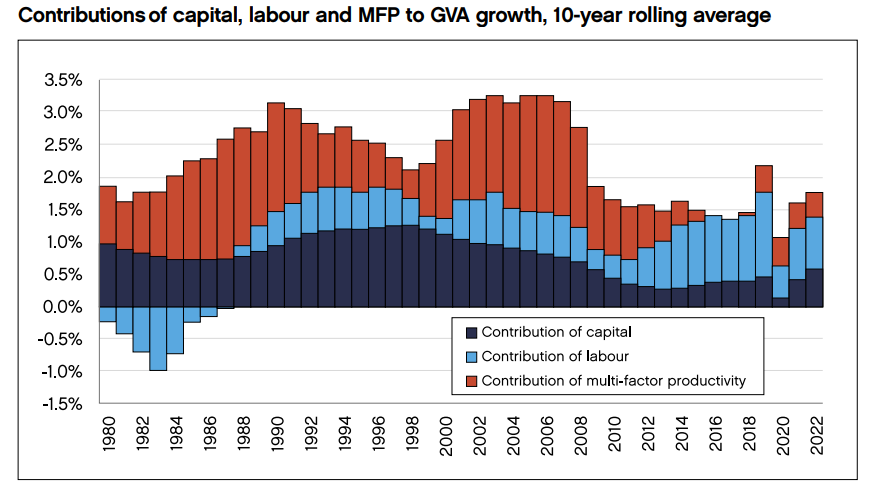High levels of migration contributing to slowdown in productivity growth, report suggests

A new report has suggested high levels of migration over the past two decades have contributed to the slowdown in the UK’s productivity growth since the financial crisis.
Productivity, a measure of workers’ output per hour, has barely budged since 2008 despite the range of new technologies firms have to work with.
“Productivity growth has not been this consistently anaemic since the onset of the Industrial Revolution and the age of modern capitalism,” Robert Jenrick, MP, and Neil O’Brien, MP, noted in a new report for the Centre for Policy Studies (CPS).
Although the report stressed that “correlation is not causation”, it suggested that mass migration since 2000 might have contributed to slowing productivity by weakening the incentive to invest in capital.
It cited research from the Migration Advisory Committee (MAC), a non-departmental public body which advises the government on migration issues, which concluded that freedom of movement “may have historically dampened incentives to adopt machinery”.
“Freedom of movement provided a relatively cheap supply of labour that may have incentivised recruitment over labour-saving capital investment, or other restructuring activity towards fewer, higher productivity and higher paying jobs,” the MAC concluded.
Although Jenrick and O’Brien highlighted that there needed to be further research on the role of migration in stymying productivity growth, they pointed to detailed research on car washing in the UK.
Between 2000 and 2015 the number of automated car wash sites more than halved from 9,000 to 4,200. The number of hand car wash sites has continued increasing and now exceeds 20,000, although it is difficult to gauge exact figures.
Looking across the economy more broadly, the report pointed out that the UK has become more labour-intensive in recent years.
“The labour contribution to gross value added crossed over with the capital contribution in 2011 and has remained relatively high ever since,” the report noted.

Migration has shot up the political agenda in recent years and was widely seen as a major contributor to the Brexit vote.
It has continued growing in political salience since the pandemic, as levels of migration climbed to record levels largely driven by non-EU migrants. The latest figures revealed net migration was a provisional 672,000 in the year to June 2023.
On the current trajectory, net migration will amount to annual population growth of over 0.6 per cent across the 2020s – double the rate of the last three decades, and six times the rate of the 1990s.
“Large-scale migration has not delivered the economic benefits its defenders argue it should – with the era of mass migration coinciding with a significant slowdown in GDP per capita growth,” O’Brien said.